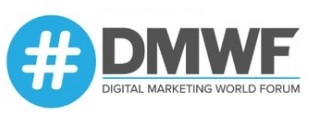
An interesting timeline has been unfolding this year, the likes of which we have never seen before. In the space of about 10 months, the global mood has swung from the depths of fear and uncertainty (as the pandemic took hold) to elation (as we started coming out of our respective lockdowns) and back to restrictions and anxiety for our health, our financial well being and our future (as the second wave spreads worldwide).
The dawning realisation is that even with a vaccine on the horizon it will be years before we get back to where we were. In fact, many of the changes that we have had to adopt and adapt to almost overnight may become a new way of life.
Of course not all of them are bad – and it is with this mindset that we need to strike out and reshape the way we will work, entertain, travel, relax and have our health monitored.
Many have spoken of this upheaval being a catalyst for positive change and the harsh reality is that we have no other options but to rise up and create an improved version of what we once knew as business as usual. No point in hankering after what was; we need to focus on the here and now. From my perspective, there are plenty of positive outcomes we can embrace.
As we all know, Covid-19 has propelled the digital era forward by a decade. We never even realised our pace of evolution had slowed to a crawl until we had no choice but to up the ante. Now digital marketers around the world have a duty of care that goes way beyond, engaging, communicating, disseminating, interacting and educating.
The digital ecosystem plays a vital role in catering for our changing lifestyles, it has the agility to keep fine-tuning and re-shaping as the need occurs, it has the capacity to link us, connect us, entertain us in entirely new ways and this is likely to be on-going for years to come as remote working progresses from temporary to permanent and social distancing remains crucial.
Take every facet of our former lives and you can start to imagine a digital version. The big question is: whether this will make us feel more alienated? Yet another role of the digital marketer is to create what has never been created before – a sense of belonging, of community, a genuine reflection of our human goals and aspirations – not a marketing-led approach, but a human-led approach.
“Mindful marketing may sound like a combination of Buddhism and Seth Godin – and to a certain extent it is – but it is not a fleeting trend. We all need to take a step back”
Giant steps forward
This is not about iterations, this is about huge transformational shifts that will catapult us into a whole new way of living.
As a consequence we need to create a new roadmap that redefines brands’ changing relationship with their customers and this starts with digging deep into the global mood that keeps dipping and soaring.
Here are my three key tips to achieve this:
Radiating calm: Strange as it may seem given the fact that our lives appear to be continually shifting, digital marketers need to offer a coherent, reassuring message that is woven into the very DNA of all their online interactions. That is not to say they don’t keep adjusting course as world events occur, rather that they remain unflustered and strong during the turmoil. The tone here is one of calm and reassurance, offering mindful advice and services without getting dragged into the chaos.
What mission? It may seem incongruous to reduce all the complex issues we currently face to a digital solution, but brands are the very manifestation of an organisation’s values and now more than ever it is vital to go beyond slick advertising and ensure a brand’s back story is authentic. We all know Coca-Cola’s mission is to make us happy but so too is McDonald’s. Now is the time for marketers to step away from thinly veiled missions aimed to persuade and look to inspire and motivate instead.
Mindful marketing: The pandemic appears to have reset many consumer habits, especially our propensity for over-consumption. This may at first feel like a blow to marketers whose key focus has been to create desire for their products or services, but conscientious shopping is taking hold and is something that we need to take into account. Mindful marketing may sound like a combination of Buddhism and Seth Godin, and to a certain extent it is, but it is not a fleeting trend. We all need to take a step back and reflect on how we want to re-shape our lives and this very much includes the way we shop.
If the pandemic has taught us anything it is that we need to reset our attitudes and mindsets to how we want to live. The consumer in all of us has been forced to do so during most of 2020 and if digital marketers want to genuinely engage with customers they need to fall in step.
The likes of Black Friday gives us some good examples of brands already doing this. Recreational equipment company, REI has been closing its stores on Black Friday for the last 6 years to give employees time to spend with their family. Skincare brand Deciem are following suite this year and promoting what they call ‘slow shopping’ , meanwhile shoe company, Allbirds is raising its prices by a dollar and matching this to donate to Greta Thunberg’s environmental charity.
Digital marketers have the opportunity to play an important role in making 2020 a year of sustainable changes that improve everyone’s lives – let’s all do so.
Photo by Debby Hudson on Unsplash

Interested in hearing leading global brands discuss subjects like this in person?
Find out more about Digital Marketing World Forum (#DMWF) Europe, London, North America, and Singapore.






